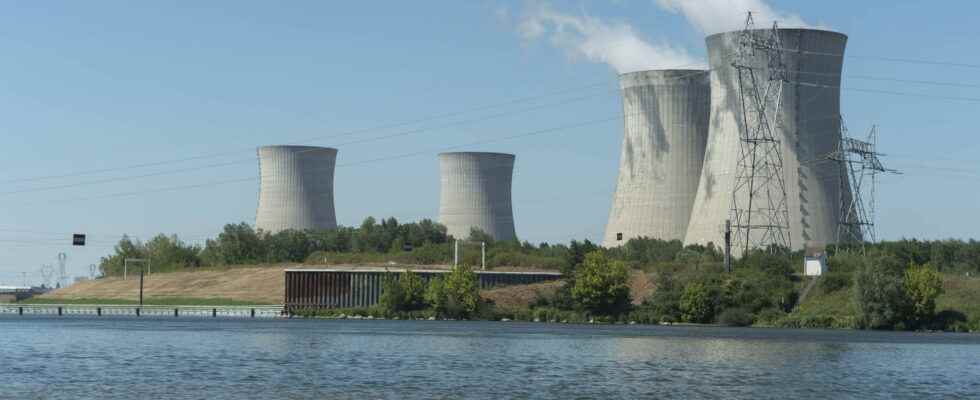EDF STRIKE. Negotiations between EDF and the striking employees begin this Wednesday, October 19, 2022. While reactors are shut down, what consequences will this have on electricity production?
[Mise à jour le 19 octobre à 12h14] It is more discreet than that in the refineries, less media than the general organized on Tuesday, but the one that worries the government the most. EDF has been hit for several days by a strike of employees demanding a salary increase. Despite pressure from Bruno Le Maire on Monday, October 17, the situation seems frozen. While the Minister of the Economy had called on the electricity producer to find “as soon as possible an agreement with its union representatives”, a beginning of a way out of the crisis could be envisaged this Wednesday, October 19, 2022. It is indeed today that negotiations must begin between the unions and the management of EDF. Discussions that promise to be crucial because they take place in a delicate period for the production of electricity in France. And the latter is further undermined by the social protest movement. Explanations.
Will the strike by EDF employees have an impact on electricity production for this winter?
Going on strike at EDF is not like going on strike in any company. Given the strategic dimension of the company linked to the production of electricity, it is impossible to stop work. “Users do not see the impact of this strike when they turn on the light at home”, admitted on France infoSaturday October 16, Julien Lambert, federal secretary of the FNME-CGT.
However, another form of contestation can be set up, without short-term effect but with possible long-term consequences. Indeed, the strikers disrupt or stop the maintenance of nuclear reactors. This Wednesday morning, 17 reactors were affected, announced Virginie Neumayer, union delegate FNME-CGT (National Federation of Mines and Energy) to Reuters, quoted by The Independent. What cause delays for the return to normal operation, sometimes a few weeks. However, with the approach of winter, delaying these repairs could limit the production of electricity to a period when consumption is usually high.
By continuing the strikes, the unions are delaying the work and therefore the restarting of the reactors. It is this winter’s energy production that will be directly penalized by the social movement and the representatives of the CGT and FO are well aware of this. This is even the purpose of their maneuver: by conditioning the lifting of the strike on the reactors under construction to the conclusion of an agreement on the level of their salary, he hopes to win his case more quickly.
Why are there strikes at nuclear power plants?
The motivations of the unions and the striking employees of the nuclear power plants are essentially financial. All require a revaluation of the level of their salary up to 5%, in particular for employees of the Gravelines site, in Hauts-de-France. Employees are also asking for inflation to be taken into account when reassessing their salaries.
In view of the annual wage negotiations, the branch of the electricity and gas industries has proposed a wage increase of 2.3% from January 2023, but the proposal does not meet the demands of the unions. It is not insignificant that the union representatives called for a strike ahead of the negotiations: they hope to exert enough pressure to win their case, all the more so in times of high tension and energy crisis.
Why is there a risk of power cuts this winter?
For the manager of the Electricity Transport Network (RTE), the probable power cuts that could occur this winter are the consequences of a combination of several factors. For the RTE, “the supply of gas, the energy situation in neighboring European countries, the evolution of demand, and the rate of restarting of French nuclear reactors.” In fact, shut down nuclear reactors are shut down for maintenance operations or due to corrosion problems. An additional factor, the conflict in Ukraine led by Russia has a strong impact on Russian gas deliveries to Europe. These deliveries are important because some European power plants use gas to run their turbines and thus produce electricity.
In a context of such high energy tension, what about potential power cuts? Fabrice Coudour, federal secretary of the CGT-FNME defends these actions. Contacted by the site News concerning the strike notice of October 6, he declared that he was acting in the interest of the French people. “The idea is not to alienate public opinion, on the contrary, we are acting in the interest of households. Because without decent wages, without the preservation of special regimes for energy workers, the profession does not attract, and the reality is that we are short of manpower. Without a sufficient number of workers, we cannot work properly to ensure that the winter goes well.”
